Search titles
Displaying results 21 to 30 of 69.

‘True Biographies of Nations?’ »
The Cultural Journeys of Dictionaries of National Biography
Edited by: Karen Fox
Publication date: April 2019
Dictionaries of national biography are a long-established and significant genre of biographical and historical writing, existing in many forms across the globe. This book brings together practitioners from around the English‑speaking world to reflect on national biographical dictionary projects’ recent cultural journeys, and the challenges presented to them by such developments as the transition to a digital environment, a new alertness to the need to represent diversity, and the rise of transnationalism. Exploring their paths forward, the chapters of this book collectively make a powerful argument for the continued value and importance of large‑scale collaborative biographical dictionary research.

Also Innovators »
How one computer salesman contributed to the digital revolution
Authored by: Christopher B. Yardley
Publication date: April 2019
‘Thank you for your order, Mr Mainframe Customer. The cost is £5 million and the lead-time for manufacture will be two years. In the meantime you will have to build a special computer centre to our specification. For our part, our project team will help you recruit and train potential programmers and we shall advise on how you might use the system.’
How different from today when the customer will want to see a specific application running before he puts a hand in his/her pocket. Chris Yardley lived the changes as a computer salesman and tells his story of a career living and working in five countries. Warts and all. The ecstasies, the heartbreaks and idiocies of major corporations.
His career was not a planned one. In a growing industry, opportunities presented themselves and Chris believes he grasped every one presented. Having written his story, he has had every chapter verified by at least one person who features in that narrative. His respondents have universally endorsed the facts with comments such as ‘Wow, I’d forgotten most of that’. ‘You have a fantastic memory.’ ‘I never knew before the full facts of what happened.’ ‘How have you remembered all the circumstances?’ ‘It really is a people business.’
This is the only book that has followed a computer sales career over almost 50 years.
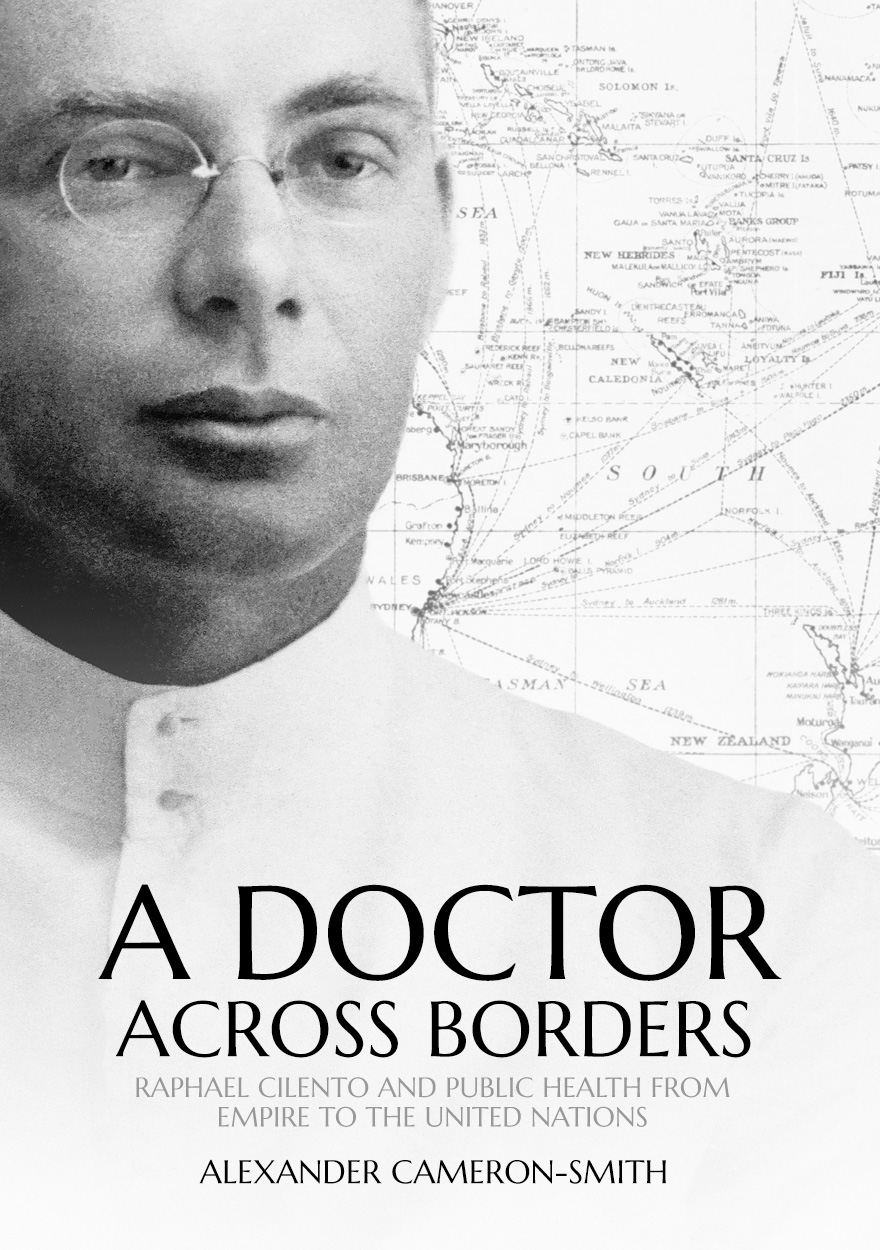
A Doctor Across Borders »
Raphael Cilento and public health from empire to the United Nations
Authored by: Alexander Cameron-Smith
Publication date: February 2019
In his day, Raphael Cilento was one of the most prominent and controversial figures in Australian medicine. As a senior medical officer in the Commonwealth and Queensland governments, he was an active participant in public health reform during the inter-war years and is best known for his vocal engagement with public discourse on the relationship between hygiene, race and Australian nationhood. Yet Cilento’s work on tropical hygiene and social welfare ranged beyond Australia, especially when he served as a colonial medical officer in British Malaya and in the Mandated Territory of New Guinea. He also worked with the League of Nations Health Organization in the Pacific Islands and oversaw international social welfare programs for the United Nations. On one level, this professional mobility allowed ideas and practices of public health and government to circulate between colonial spaces of northern Australia, the Pacific Islands and Asia. On another, it meant that Cilento’s Pacific colonialism and colonial experience shaped his understanding of Australian national health and welfare. Rather than attempt a comprehensive biography of Cilento, this book instead uses this border-crossing career as a means to explore several material and discursive facets of Australia’s relationships to the Pacific and the world.
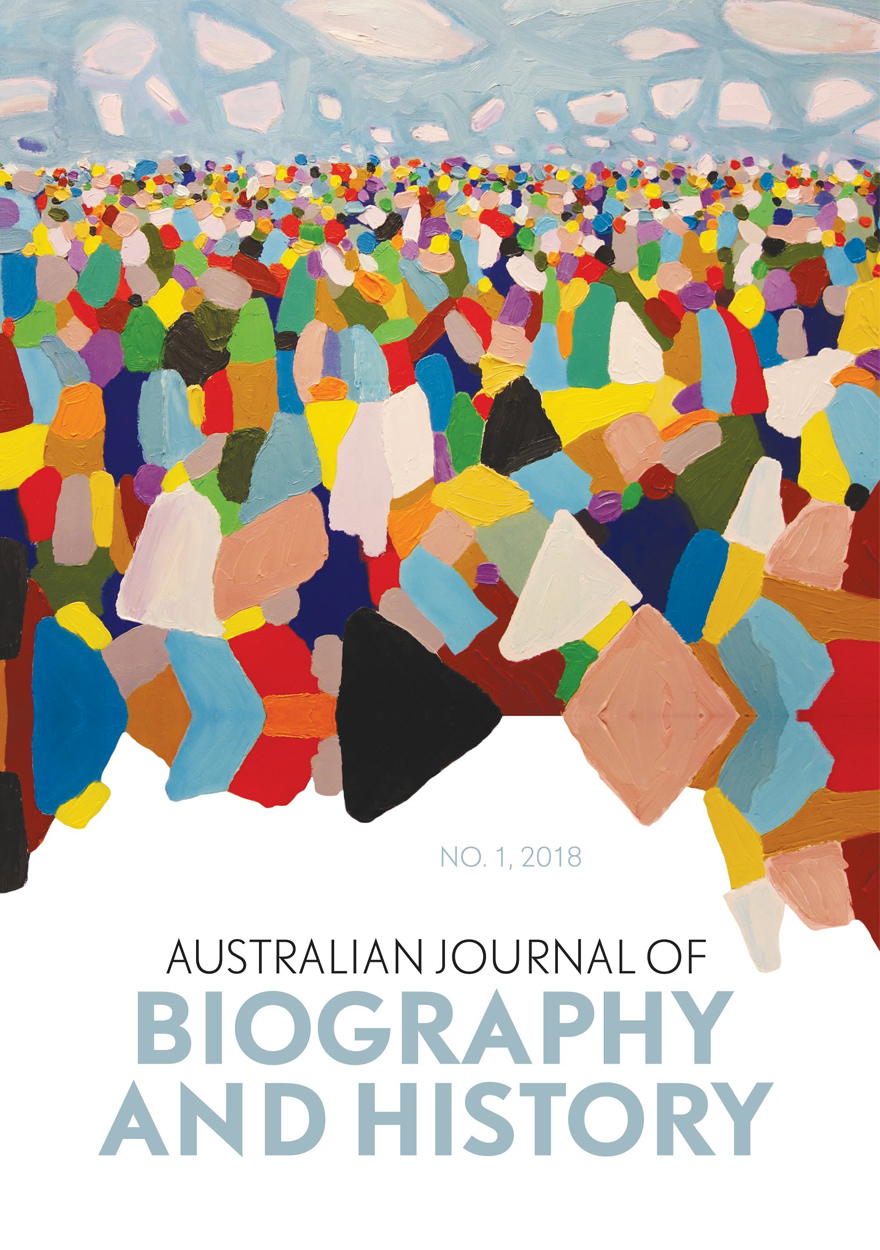
Australian Journal of Biography and History: No. 1, 2018 »
Publication date: December 2018
In this first issue, a diverse range of essays primarily relates to questions of individuals and the contexts in which they functioned, the ‘middle ground’ between a life and the times. Four of them concern Australian women who operated and negotiated various fields of endeavour, only one of which—the role of headmistress of a girls’ school—was unambiguously a woman’s domain. The profile of Miss Annie Hughston (1859–1943) shows how a strong figure could have a disproportionate influence on women entering male bastions. Similarly, Nancy Atkinson, a pioneering bacteriologist at the University of Adelaide, was not only a scientific researcher of note but a teacher of generations of graduate students. Yet when the chair in her field finally became available, she was overlooked in favour of a male English import, despite having acted in the role for many years. She was valued it seems more for her teaching than her research, a classic tendency to ascribe to women in scientific circles a nurturing rather than a knowledge-creating function. Jean Andruana Jimmy (1912–1991), a Yupngayth woman from Mapoon in north Queensland, also became prominent in community leadership and land rights activism, areas that had been assumed to be male spheres. Yet leading her community was by no means as revolutionary as was often assumed by outside European observers, for Andruana saw herself resuming a role that was entirely consistent with women’s responsibilities. Sophie Scott-Brown’s portrait of the playwright and director Eunice Hangar examines the nature of reading as ‘a simultaneously social and individualistic activity’ and its implications for understanding the way Australians have read English writers.
The article on the nineteenth-century journalist and gold commissioner Fredrick Dalton explores the potential of nineteenth-century mobilities in the formation of identity. Karen Fox explores how family history, in this case the Stephen and Street ‘legal dynasty’, can illuminate an understanding of legal and power relations in a geographic setting. The article on André Kostermans, a renowned Dutch Indonesian botanist, is also on one level a story of shifting identity. Born in the Dutch East Indies, and trained in botany in Holland, Kostermans was interned by the Japanese during World War II, and used his skills to supplement the diet of his fellow prisoners of war, and to develop a ‘bush’ procedure for producing surgical-grade alcohol, actions that undoubtedly saved the lives of many. After the war, his career was almost ruined by the Indonesian government’s response to his homosexuality. In the final essay, the University of Xian scholar Tiping Su discusses the problem of the ‘missing’ Chinese in the Australian Dictionary of Biography, explaining the various issues in identifying and historicising the many Chinese who sojourned in Australia, as well as those who stayed.
Download for free
Not available for purchase

The Lives of Stories »
Three Aboriginal-Settler Friendships
Authored by: Emma Dortins
Publication date: December 2018
The Lives of Stories traces three stories of Aboriginal–settler friendships that intersect with the ways in which Australians remember founding national stories, build narratives for cultural revival, and work on reconciliation and self-determination. These three stories, which are still being told with creativity and commitment by storytellers today, are the story of James Morrill’s adoption by Birri-Gubba people and re-adoption 17 years later into the new colony of Queensland, the story of Bennelong and his relationship with Governor Phillip and the Sydney colonists, and the story of friendship between Wiradjuri leader Windradyne and the Suttor family. Each is an intimate story about people involved in relationships of goodwill, care, adoptive kinship and mutual learning across cultures, and the strains of maintaining or relinquishing these bonds as they took part in the larger events that signified the colonisation of Aboriginal lands by the British. Each is a story in which cross-cultural understanding and misunderstanding are deeply embedded, and in which the act of storytelling itself has always been an engagement in cross-cultural relations. The Lives of Stories reflects on the nature of story as part of our cultural inheritance, and seeks to engage the reader in becoming more conscious of our own effect as history-makers as we retell old stories with new meanings in the present, and pass them on to new generations.

Carl Strehlow’s 1909 Comparative Heritage Dictionary »
An Aranda, German, Loritja and Dieri to English Dictionary with Introductory Essays
Edited by: Anna Kenny
Publication date: August 2018
Carl Strehlow’s comparative dictionary manuscript is a unique item of Australian cultural heritage; it is a large collection of circa 7,600 Aranda, 6,800 Loritja (Luritja) and 1,200 Dieri to German entries compiled at the beginning of the twentieth century at the Hermannsburg Mission in central Australia. It is an integral part of Strehlow’s ethnographic work on Aboriginal cultures that his German editor Baron Moritz von Leonhardi published as Die Aranda- und Loritja-Stämme in Zentral-Australien (Strehlow 1907–1920) in Frankfurt. Strehlow and his editor had planned to publish a language study that included this comparative dictionary, but it remained unpublished until now due to a number of complicated historical and personal circumstances of the main characters involved with the dictionary.
Strehlow’s linguistic work is historically and anthropologically significant because it probably represents the largest and most comprehensive wordlist of Indigenous languages compiled in Australia during the early stages of contact. It is an important primary source for Luritja and Aranda speakers. Both languages are spoken in homes and taught in schools in central Australia.
The reasons for presenting this work as a heritage dictionary—that is, as an exact transcription of the original form of the handwritten manuscript—are to follow the Western Aranda people’s wishes and to maintain its historical authenticity, which will prove to be of great use to both Indigenous people and scholars interested in language.
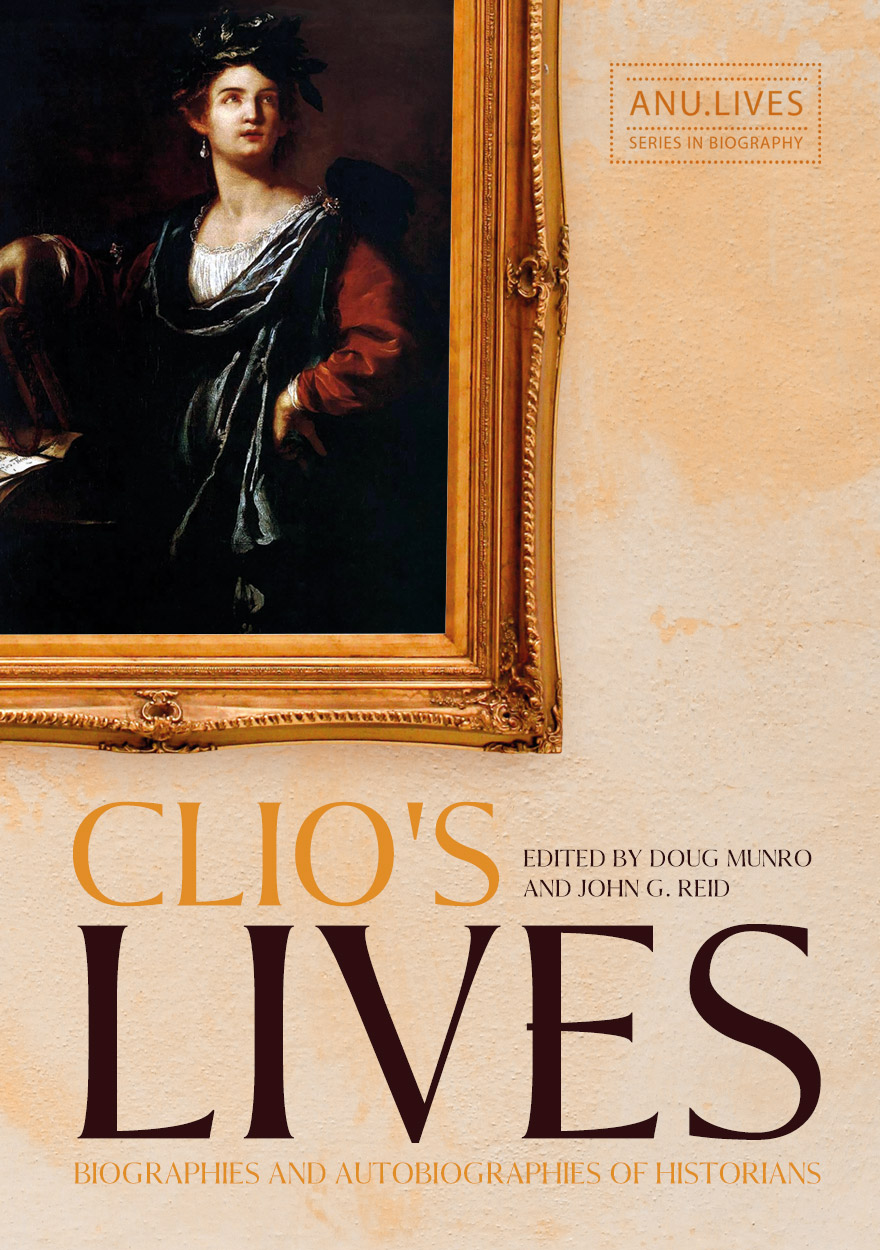
Clio’s Lives »
Biographies and Autobiographies of Historians
Edited by: Doug Munro, John G. Reid
Publication date: October 2017
Including contributions from leading scholars in the field from both Australia and North America, this collection explores diverse approaches to writing the lives of historians and ways of assessing the importance of doing so. Beginning with the writing of autobiographies by historians, the volume then turns to biographical studies, both of historians whose writings were in some sense nation-defining and those who may be regarded as having had a major influence on defining the discipline of history. The final section explores elements of collective biography, linking these to the formation of historical networks. A concluding essay by Barbara Caine offers a critical appraisal of the study of historians’ biographies and autobiographies to date, and maps out likely new directions for future work.
Clio’s Lives is a very good scholarly collection that advances the study of autobiography and biography within the writing of history itself, taking theoretical questions in significant new directions. The contributors are well known and highly respected in the history profession and write with an insight and intellectual energy that will ensure the book has considerable impact. They examine cutting-edge issues about the writing of history at the personal level through autobiography and biography in diverse and innovative ways. Together the writers have provided reflective chapters that will be widely read for their impressive theoretical advances as well as being inspirational for new entrants to the disciplinary area.
— Patricia Grimshaw, University of Melbourne
Clio’s Lives brings together a most interesting and varied cast of contributors. Its chapters contain sophisticated and well-penned ruminations on the uses of biography and autobiography among historians. These are clearly connected with the general themes of the volume. This delightfully mixed bag makes very good reading and, as well, will serve as a substantial contribution to the study of the biography and autobiography.
— Eric Richards, Flinders University

German Ethnography in Australia »
Edited by: Nicolas Peterson, Anna Kenny
Publication date: September 2017
The contribution of German ethnography to Australian anthropological scholarship on Aboriginal societies and cultures has been limited, primarily because few people working in the field read German. But it has also been neglected because its humanistic concerns with language, religion and mythology contrasted with the mainstream British social anthropological tradition that prevailed in Australia until the late 1960s. The advent of native title claims, which require drawing on the earliest ethnography for any area, together with an increase in research on rock art of the Kimberley region, has stimulated interest in this German ethnography, as have some recent book translations. Even so, several major bodies of ethnography, such as the 13 volumes on the cultures of northeastern South Australia and the seven volumes on the Aranda of the Alice Springs region, remain inaccessible, along with many ethnographically rich articles and reports in mission archives. In 18 chapters, this book introduces and reviews the significance of this neglected work, much of it by missionaries who first wrote on Australian Aboriginal cultures in the 1840s. Almost all of these German speakers, in particular the missionaries, learnt an Aboriginal language in order to be able to document religious beliefs, mythology and songs as a first step to conversion. As a result, they produced an enormously valuable body of work that will greatly enrich regional ethnographies.
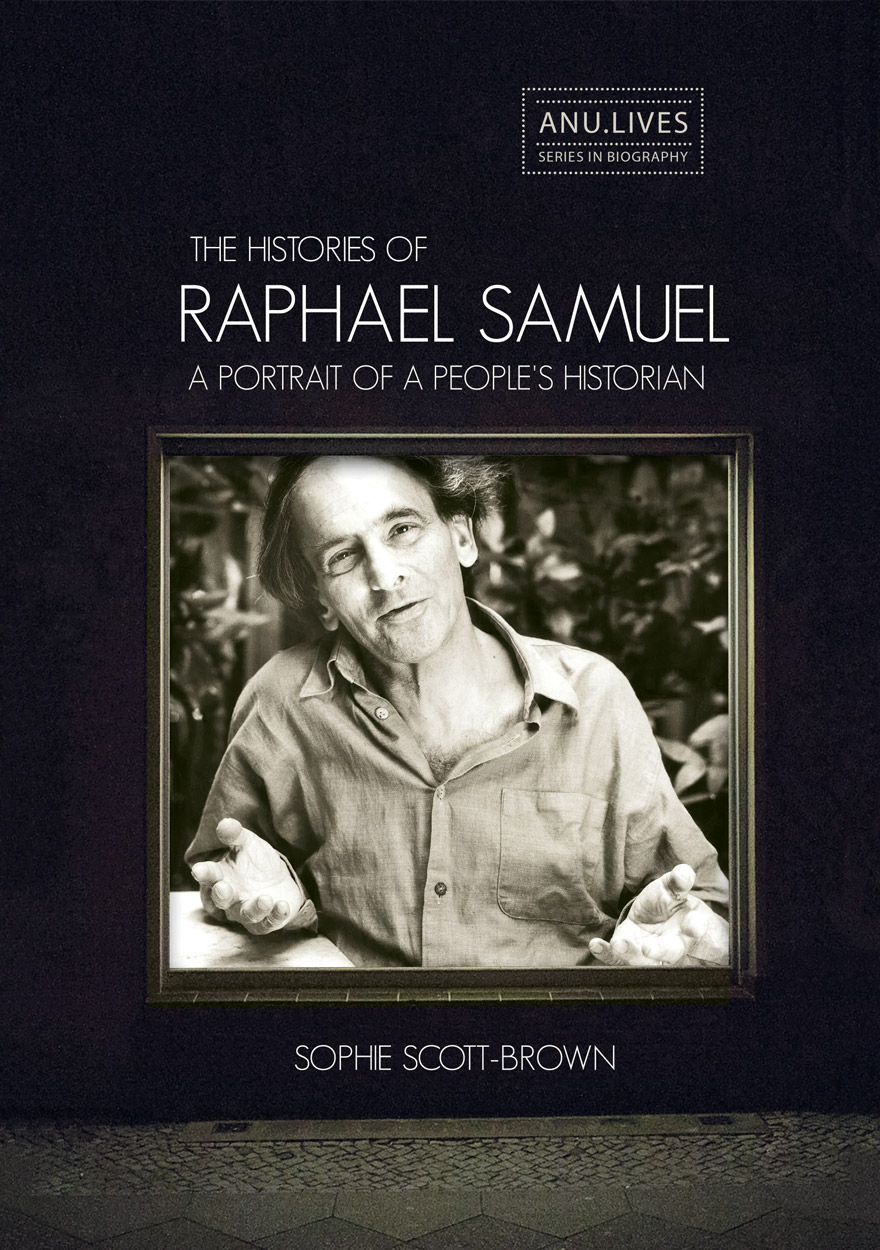
The Histories of Raphael Samuel »
A portrait of a people's historian
Authored by: Sophie Scott-Brown
Publication date: May 2017
In the first integrated biographical study of his work, this book situates British historian Raphael Samuel (1934–1996) in relation to his distinctive form of activist politics as they developed from youthful Cold War communism to the first British New Left, 1960s radicalism to the 1980s history wars.
As the catalyst behind the History Workshop movement, Samuel championed the democratisation of history-making and practised an eclectic form of people’s history in his own work. His unique approach was controversial, drawing impassioned responses from across the ideological spectrum, the most sustained critique often coming from his left-wing contemporaries. It is argued here that this compelling figure has been unjustly neglected and that he continues to offer important insights into the politics of history-making in a post-Marxist world.
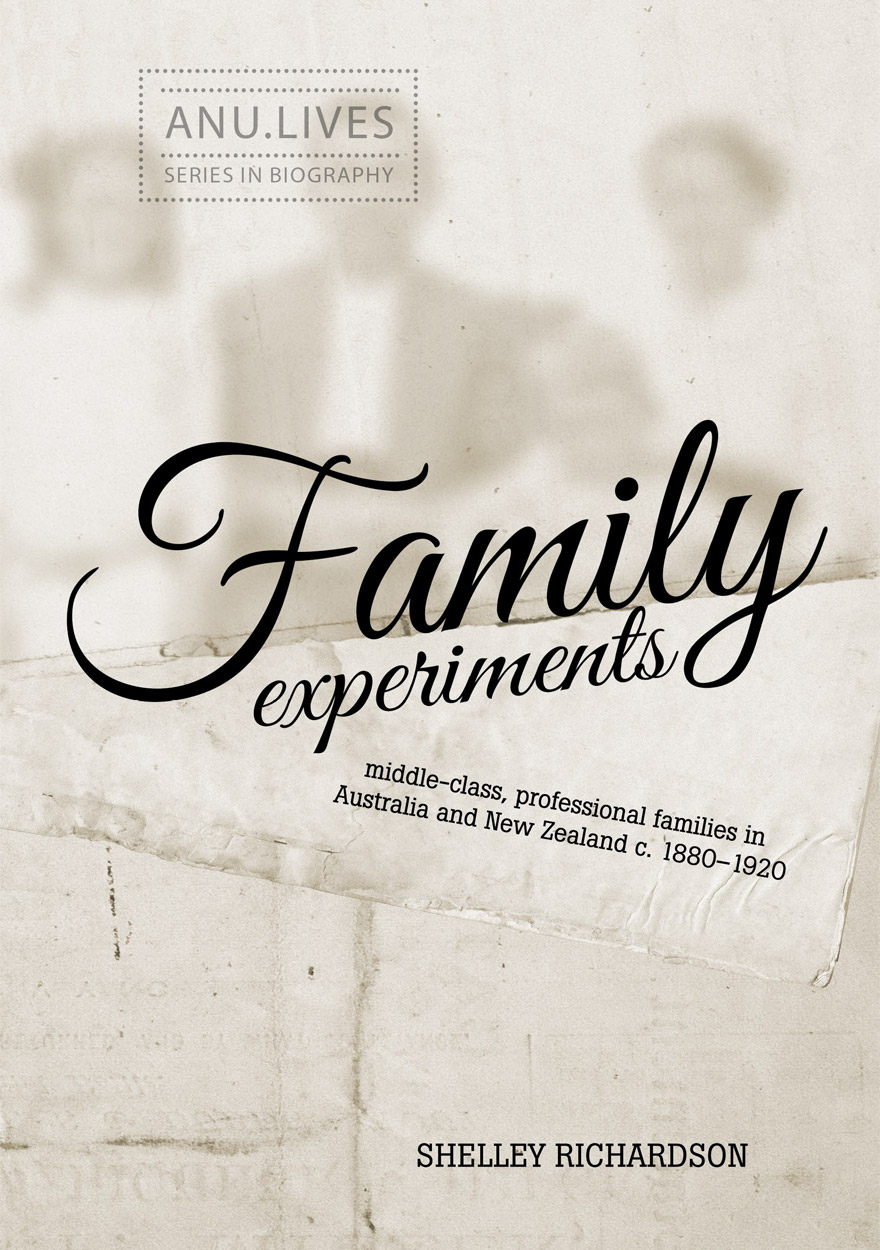
Family Experiments »
Middle-class, professional families in Australia and New Zealand c. 1880–1920
Authored by: Shelley Richardson
Publication date: November 2016
Family Experiments explores the forms and undertakings of ‘family’ that prevailed among British professionals who migrated to Australia and New Zealand in the late nineteenth century. Their attempts to establish and define ‘family’ in Australasian, suburban environments reveal how the Victorian theory of ‘separate spheres’ could take a variety of forms in the new world setting.
The attitudes and assumptions that shaped these family experiments may be placed on a continuum that extends from John Ruskin’s concept of evangelical motherhood to John Stuart Mill’s rational secularism. Central to their thinking was a belief in the power of education to produce civilised and humane individuals who, as useful citizens, would individually and in concert nurture a better society.
Such ideas pushed them to the forefront of colonial liberalism. The pursuit of higher education for their daughters merged with and, in some respects, influenced first-wave colonial feminism. They became the first generation of colonial, middle-class parents to grapple not only with the problem of shaping careers for their sons but also, and more frustratingly, what graduate daughters might do next.



